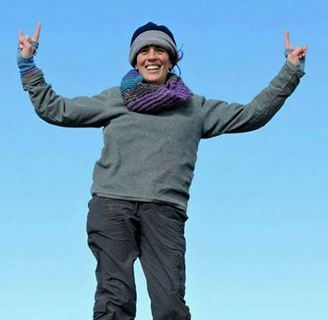When you get up in the morning, is your alarm clock an actual clock on your bedside table, or is it a mobile device, somewhere in or near your bed? Chances are your device is within arm’s reach of you when you sleep, maybe it even disturbs your sleep.
I have read two chapters so far and recognised my own behaviour so much it was unnerving. He also reports that instances increase down the generations, a worrying prognosis for todays’ toddlers who are already scarily proficient with a smart phone. While it can be very hard, if not impossible, to break free from technology in the 21st century, there are steps we can take to minimise the negative impact we allow it to have on our mental health. Make a point of engaging in an activity that isn’t technology dependent – read an actual book, go for a walk, make something with your hands, engage in physical activity, practice Yoga, dedicate one day a week to ‘switch off’, spend time in nature, at the coast, in the hills. These activities take us into the moment, and allow us to reset our brains away from the click bait.
“We really need to retrain our mind to disconnect in order to reconnect, we are human beings, not machines”.
Esther Nagle believes that happiness and health are our birthright, and that we can all take simple steps to achieve this. She has battled many personal demons, including alcoholism and the low self esteem that fuelled this, to achieve this for herself and wants to help others find the same for themselves.
You can learn more about the tools Esther offers on her website www.balanceandbreathe.co.uk/
Esther is hosting a retreat to help people disconnect from their technology and connect with themselves, and the people and world around them. The retreat is at Coed Hills Rural Artspace from 31st July – 2nd August. Further details are available on www.balanceandbreathe.co.uk/disconnect/












